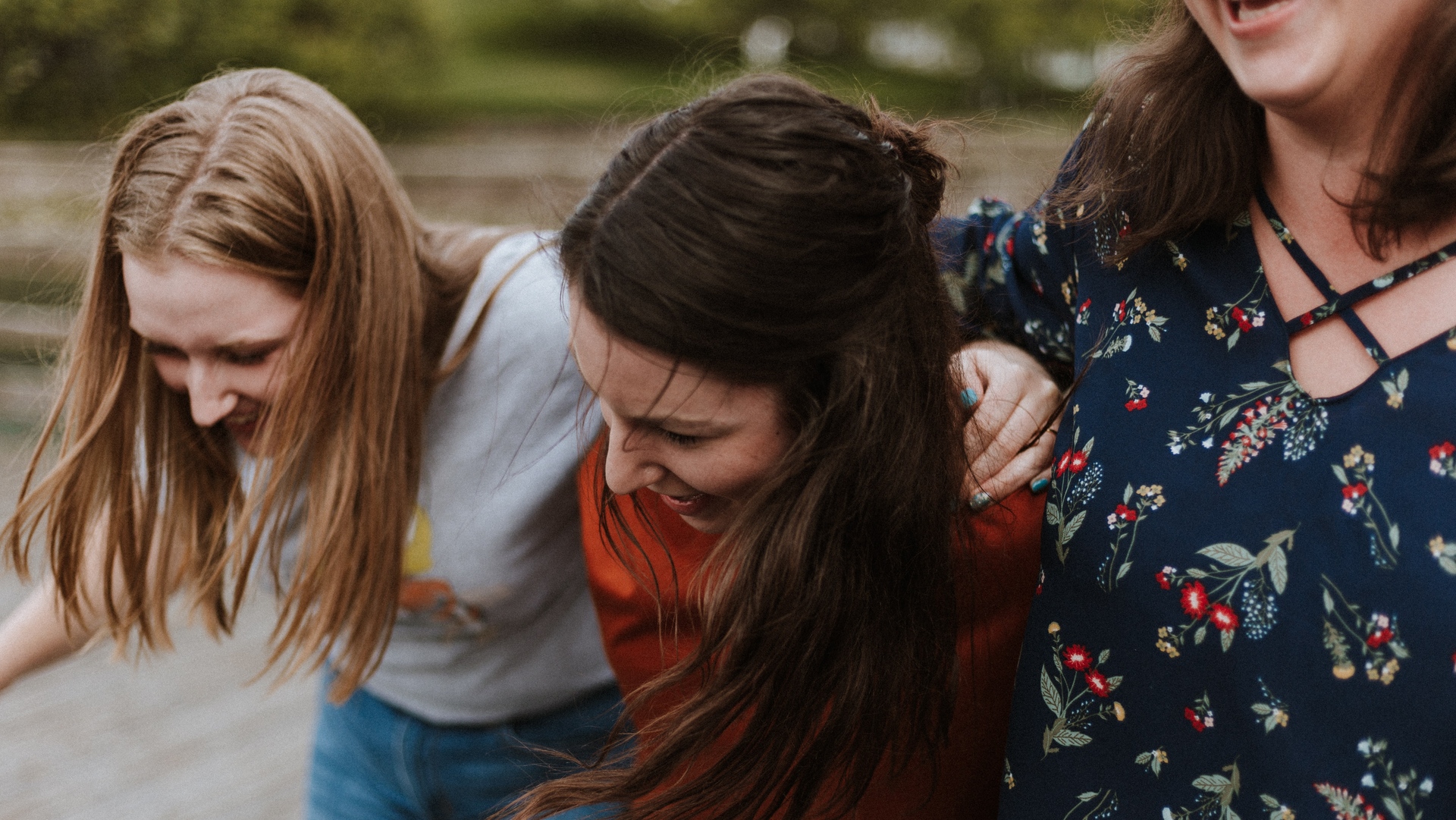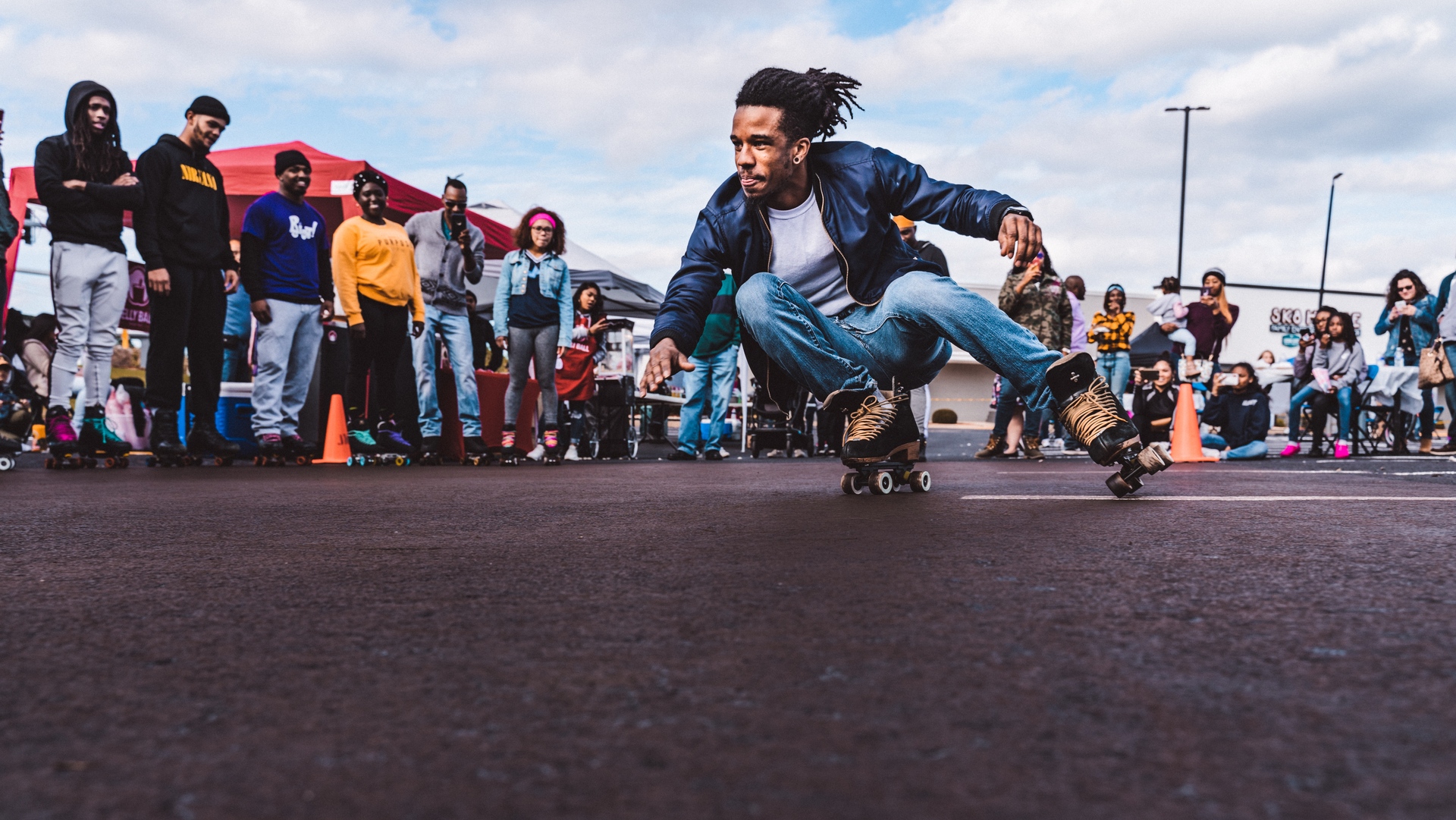Social Science Handbook
Search results for: hands on
YouCount Youth Citizen Social Science Handbook
Citizen Social Science brings together social science researchers and citizens focusing on social issues, social phenomena, and the social dimensions of the world while applying and integrating social science methodologies and theories in their collaborative research efforts. These characteristics influence, for example, the focus and management of the project, the role of the researchers and the citizens, the participatory work, and ethical concerns. There are many handbooks and guidelines for conducting citizen science, but mostly within natural sciences. Yet, there are few handbooks detailing hands-on citizen social science with young people, and focusing on co-creative qualitative or mixed-methods approaches. This handbook, and its toolkit, build on the experiences from the H2020 YouCount project (2021-2023) and represent a unique contribution to the field of citizen social science. It is, overall, an exercise on social science communication that can be useful to a wide array of publics: practitioners, academics, policymakers, youth organisations and anyone interested in citizen social science as a way of creating a future shaped by more inclusive, participatory research and social innovation.
You can take a look through the YouCount Handbook here:
Handbook and Toolkit for Youth Citizen Social Science
Citizen Social Science brings together social science researchers and citizens focusing on social issues, social phenomena and the social dimensions of the world, while applying and integrating social science methodologies and theories in their collaborative research efforts. These characteristics influence, for example, the focus and management of the project, the role of the researchers and the citizens, the participatory work, and ethical concerns. There are many handbooks and guidelines for conducting citizen science, but mostly within natural sciences. Yet, there are few handbooks detailing hands-on citizen social science with young people, and focusing on co-creative qualitative or mixed-methods approaches. This handbook, and its toolkit, build on the experiences from the H2020 YouCount project (2021-2023) and represent a unique contribution to the field of citizen social science. It is, overall, an exercise on social science communication that can be useful to a wide array of publics: practitioners, academics, policymakers, youth organisations and anyone interested in citizen social science as a way of creating a future shaped by more inclusive, participatory research and social innovation.
Meta Report of the YouCount Experiences with Case Study Implementation
This deliverable describes what hands-on Youth Citizen Social Science (Y-CSS) looks like in practice in the YouCount multiple case study. Using data primarily from individual case reports from consortium partners, it compares and contrasts the experience of implementation across the 10 cases of Y-CSS. It builds upon the conceptual and methodological frameworks in D1.2 and D1.3, the ethical framework and work securing ethical approvals established in D2.1, the D1.5 Report from ECSA workshops, and the strategy for evaluating Y-CSS. A summary of ethical challenges and how these were dealt with will be elaborated upon in the upcoming D6.5 Ethics Final Report by January 31, 2024.
Meta-report on the Typology of Drivers and Model for Social Inclusion
This deliverable includes a presentation of the social inclusion cross-case analysis of the 10 YouCount hands-on citizen social science (CSS) case studies. It explores three key empirical research questions: What are young people’s views on the critical issues for social inclusion? What are young people’s experiences with opportunities for social inclusion in their daily lives? What new means and policies to increase social inclusion are needed?This deliverable includes a presentation of the social inclusion cross-case analysis of the 10 YouCount hands-on citizen social science (CSS) case studies. It explores three key empirical research questions: What are young people’s views on the critical issues for social inclusion? What are young people’s experiences with opportunities for social inclusion in their daily lives? What new means and policies to increase social inclusion are needed?The primary source of data for the analysis presented in this deliverable is the final case study reports, based on a common template structuring the analytical dimensions, written by the professional researchers working on the 10 YouCount case studies. In addition, some preliminary findings from the YouCount App data analysis are also integrated.
Conference Program
Updated program, November 30, 2023
December 4: 14. 00 – 17.00
Nordic House, Brussel, Rue du Luxembourg 3 / 5, 1000 Brussel
Pre-conference Workshop and Exhibition
Update! First part of the workshop from about 14.00 – 14. 45 CET will be hybrid.
Link to the zoom webinar: https://oslomet.zoom.us/j/67322175440?pwd=TXExZzR6MnlPNmtld0tzWlhNNWxBQT09
The pre-conference workshop and exhibition is targeted for those interested in learning more about how to conduct hands-on citizen social science in practice, in general and with a special focus on young people. The workshop is based on the project’s multiple case study which includes ten local case projects in nine countries across Europe, and the exhibition will provide more concrete descriptions from the cases.
The workshop will consist of a short introduction to the YouCount project and a conceptual framework for youth citizen social science. This will be followed by a short overview of key aspects of hands-on youth citizen social science as detailed in the agenda below.
We will then invite participants to “take a journey throughout Europe”, select the places they would like to explore, and then visit our café tables with researchers and young citizen scientists from the ten cases, focusing on special aspects of doing citizen social science in practice.
Our café tables will feature posters from the cases, including our many Oops and Aha moments to trigger sharing of experiences and discussions.
During the workshop, we will also present and discuss a first draft of the upcoming Handbook and Toolkits for youth citizen social science for further refinement based on the participant’s feedback.
Exhibition (onsite and virtual)
The exhibition is part of the workshop. Co-designed with co-researchers, it represents their own story, essential findings, and experiences. At each "station", young citizen scientists will guide participants through the case country's findings and possibly offer a small taste experience.
Those participating online will have access to a simplified visual representation of the onsite exhibition. They will be able to investigate the different "stations” through the case countries and their findings. The exhibition will also be part of the interactive session about the potential for youth citizen social science and its challenges, a topic that will be discussed in the second day of the conference.
Link to the virtual exhibition: https://miro.com/app/board/uXjVNRkFnbk=/?share_link_id=680278430138
Agenda and time schedule for the workshop
|
Time |
What |
Topic |
Presenters |
|
Coffee and croissants |
|||
|
14.00 – 14.15 |
Introduction |
Welcome Brief overview of the project Conceptual framework
|
Project Coordinator
|
|
14.15 – 14.45 |
Presentations
|
How to conduct hands-on citizen social science with youth and local stakeholders in practice?
Including,
|
Authors from the handbook |
|
14.45 – 15.00 |
Introducing the Europe Café & Exhibition |
|
Aina Landsverk Hagen, Sara Berge Lorenzen & Cathrine Winther |
|
15.00 – 15.30 |
Coffee break |
Walk, talk, and snack in the lounge/exhibition area |
|
|
15.30 – 16.45 |
The Europe Café: Interactive session |
Aha & Oops moments from 10 cases in YouCount |
|
|
16.45 – 17.00 |
Summing up |
|
Workshop moderators |
| 17.10 – 17.40 | Movie-time with some beverages before the welcome reception! | The Hungary B case team shows their sci-fi movie: "What is social innovation? A mystery-documentary" (2023) (25 minutes) with a short presentation |
Gina Barta, Dominka Ágoiston, Ágnes Bozsó, Márton Oblath |
Welcome reception 18.00 – 20.30
Nordic House, Brussels, Rue du Luxembourg 3 / 5, 1000 Brussel
Please stay with us after the workshop for the Welcome Reception from 18.00 – 20.30 hosted by the Oslo Region European Office (ORE).
At 18.30, we will have a greeting by Director of ORE, Gunnar Selvik, the Counsellor for research at the Mission of Norway to the EU Geir Arnulf and Reidun Norvoll, YouCount Coordinator, OsloMet.
December 5: 09.00 – 17.00
(Exhibition lasts to 18.00)
Final Conference (hybrid)
NH Brussels EU Berlaymont, Boulevard Charlemagne 11 - 19, 1000 Brussels
The Final Conference will focus on presenting and discussing the main learnings from the YouCount project together with participants and key stakeholders from Europe and globally concerning our three main strands of inquiry:
- To develop and validate a conceptual and methodological framework for hands-on youth citizen social science.
- To use this framework to empower young people and co-create new knowledge of social inclusion and social innovations with policymakers and other stakeholders.
- To increase knowledge of the actual outcomes and costs- and benefits of youth citizen social science, broadly understood.
Streaming link (Vimeo) for the conference day
The program is split into four main sessions:
Session 1: Introduction to the YouCount project
After a short introduction to the YouCount project by Project Coordinator Reidun Norvoll, Project Adviser and Project Officer Katharina Buse from the Research Executive Agency (REA) will connect YouCount to the overall ambition of the H2020 Science with and for Society programme. Our keynote speaker, Professor Alan Irwin will then contextualise the project in his introductory speech about the history and future of citizen social science.
Session 2: Key findings and experiences related to the development, practices and evaluation of youth citizen social science
After presentations of the conceptual framework for youth citizen social science and research findings, there will be a "walk- and talk"- session in the exhibition area, where small groups discuss and identify some key potentials and challenges related to youth citizen social science.
These issues will inform a roundtable discussion, where young citizen scientists, representatives from the European Commission, academia and related EU citizen science projects will reflect on how citizen social science can be further improved and supported. So far, Policy Officer Gabriella Leo from the European Commission, DG R&I, Open science and Research Infrastructure Unit; Professor of Theory of Science Dick Kasperowski from Gothenburg University; Scientific Coordinator and COESO project coordinator Alessia Smaniotto; and, Science Adviser Asya Salnikova from the Time4Cs project will participate in the discussions.
Session 3: Findings from YouCount on social inclusion and innovation - implications for social sciences and social and youth policymaking
The next session after the lunch break, will focus on the role of citizen social science for social change through social innovation and policymaking. After a presentation of results concerning social innovation, we will look closer into the findings from the social inclusion research and discuss the most important and interesting findings in interactive group discussions.
Young citizen scientists, social scientists including Josep Perelló, CoAct project coordinator and OpenSystems-UB research; key stakeholders such as Deputy Head of Unit Mina Stareva from the European Commission, Fair Societies & Cultural Heritage; representative from the European Youth Forum Boshko Stankovski; Sandra Paola Alvarez from the International Organisation of Migration Europe; and, Tomas De Groote from Sociale InnovatieFabriek will share their own perspectives.
Session 4: You Count's overall impact and way forward in the European and international context.
This session will look closer into the possible impact of youth citizen social science based in the findings from the YouCount project, and then discuss implications for the European and international context featuring Claudia Fabó Cartas, Project officer at ECSA and Project Manager of the EU-funded project ECS, and Laone Bukamu Hulela, Director of Youth Alliance for Leadership and Development in Africa (YALDA) who will share closing remarks.
Agenda
|
08.30 – 09.00 |
Registration Visit our exhibition and meet YouCount’s young citizen scientists during the day! |
|
|
09.00 – 10.00
|
Session 1: Introduction
Moderator: Aina Landsverk Hagen, OsloMet |
|
|
09.00 – 09.10
|
Welcome
|
Aina Landsverk Hagen, OsloMet
|
| 09.10 – 09.15 | Sneak peak of the documentary film from the Oslo- case. Made by the local youth social entrepreneurship «Ildfluene» (Fireflies) | Dichino Nguyen, part of the youth editorial team |
|
09.15 – 09.25 |
A brief introduction to the YouCount project
|
Project Coordinator, Reidun Norvoll, OsloMet
|
|
09.25 – 09.40 |
How can YouCount contribute to supporting citizen science within the EU and as part of the Science with and for Society - program? |
PO Katharina Buse, REA, EU
|
|
09.40 – 10.00 |
The history and future of citizen social science
|
Professor Alan Irwin, Copenhagen Business School
(online) |
|
10.00 – 13.00
|
Session 2: Youth citizen social science Moderator: Aina Landsverk Hagen, OsloMet
|
|
|
10. 00 – 10:25 |
Conceptual framework for youth citizen social science (WP1)
A Participatory Approach to Communication |
Professor Eglė Butkevičienė, KTU
Researcher Patricia Canto Farachala, Orkestra, FD
|
|
10.25 – 10.45 |
Coffee break |
|
|
|
|
|
|
10.45 – 11.00 |
Youth citizen social science in practice - key experiences and insights from the multiple case study
|
Professor Julie Ridley, UCLan |
|
11.00 – 11.15 |
Experiences with the YouCount App Toolkit |
Researcher Ingar Brattbakk, OsloMet
|
|
11.15 – 11.30 |
What are the outcomes of Y-CSS? Key findings from the evaluation study (WP4)
|
PreDoc Melanie Saumer, Professor Jörg Matthes UNIVIE
|
|
11.30 – 12.00 |
Travel through Europe in the onsite and virtual exhibition: what are the key potentials and challenges when it comes to (youth) citizen social science?
|
All participants |
|
12.00 – 13.00 |
Roundtable discussion 1 How to strengthen co-creative/participatory citizen social science with young people in policy and practice?
Implications of the identified key issues, and the learnings from the YouCount project, for citizen science, science policy and institutional changes.
Discussions with key stakeholderstogether with moderator Patricia Canto Farachala, Orkestra, FD from the YouCount project
|
Participants:
Gabriella Leo. Policy Officer, DG R&I, Unit A4, EC
Professor Dick Kasperowski, Gothenburg University
Asya Salnikova, ESF/ Scientific Adviser Time4CS project
Alessia Smaniotto, (EHESS/OPERAS), Project Coordinator COESO project
|
|
13.00 – 14.00
|
Lunch Visit the exhibition |
|
|
14.00 – 16.00
|
Session 3: Youth citizen social science contributing to social inclusion and innovation
Moderator: Eglė Butkevičienė, KTU
|
|
|
14.00 – 14.15 |
To what extent can Y-CSS contribute to social change and how?
The role of CSS in social innovation |
György Pataki, senior research fellow/ Alexandra Czeglédi, research fellow |
|
14.15 – 14.35
|
New knowledge of young people's views on and experiences with social inclusion, and positive drivers to social inclusion
|
Professor Fortuna Procentese and PostDoc Flora Gatti, UNINA
|
|
14.35 – 15.35
|
Roundtable 2 Implications of social inclusion and innovation findings for (citizen) social science research and for future youth/social policy
Which findings are important takeaways for future innovation and policymaking to increase social inclusion?
Q & A session with the audience
|
Ms. Mina STAREVA, Deputy Head of Unit, RTD.D3, Fair Societies & Cultural Heritage, EC
Boshko Stankovski,
Paola Alvarez, Regional Office for the EEA, EU, and NATO. International Organization for Migration, Brussels
Josep Perelló, OpenSystems-UB research leader and CoAct project coordinator, University of Barcelona & UBICS
|
|
15.35 – 16.00 |
“Walk- and talk”: What do you find as the most interesting and important findings for future social innovation and policymaking to increase social inclusion?
|
All participants |
|
16.00 – 17.00
|
Session 4: Closing up and way forward Moderator: Eglė Butkevičienė, KTU
|
|
|
16:00 – 16:45 |
What are the impacts of YouCount and how can we enhance the benefits and impact of citizen social science? Key takeaways and next steps forward to strengthen CSS with and for youth, and its contribution to social inclusion in Europe and internationally.
|
Usue Lorenz, Researcher, Orkestra, FD/ Susana Franco, Researcher Orkestra, FD
Claudia Fabó Cartas, Scientific advisor ECSA and Project Manager ECS project
Laone Bukamu Hulela, Director, Youth Alliance for Leadership and Development in Africa (YALDA)
|
|
16:45 – 17.00 |
Closing up and thank you |
Reidun Norvoll, Project Coordinator, OsloMet
And members of the YouCount project team |
|
17:00 – 18:00 |
Visit our Exhibition!
|
|
Report on Citizen Social Science and Social Innovation
This deliverable includes a presentation of the social innovation analysis of the ten YouCount hands-on citizen social science (CSS) case studies implemented under YouCount WP3 Task 3.3 'Cross-case analysis of local innovation, social change and the innovative potential of CSS'. The cross-case social innovation analysis explored the ten YouCount hands-on CSS case studies as social innovation processes that created new framings for youth social inclusion, provided space for new social encounters for social actors otherwise rarely meet (including most prominently intergenerational encounters), developed new social practices for collaborative research and innovation, and enacted a new temporality compared to conventional social science research. The cross-case social innovation analysis also explored the CSS cases as creating social impacts at multiple levels that included the increased self-confidence of R-YCS, the enhanced sense of accomplishment and pride by R-YCS, the strengthened feeling of social belonging by R-YCS, the establishment of new network constellations, the importance of 'research relationships,' the enactment of a relational approach to doing research, the stakeholders' perspective change on youth, and the future collaborations that were inspired. The technological perspective on the YouCount cases highlighted the role and impacts of technology and digital tools in CSS. The adaptation of these tools had both positive and negative effects on social inclusion, engagement, learning processes and interpersonal interactions. The analysis showed that the normalisation of technology can lead to digital fatigue – with young people opting for analogue, offline methods – and a digital divide – when certain members of the CSS research groups need further support in interacting with technology in the research process. Finally, analysing the role of CSS in social innovation revealed that 'CSS as social innovation' can be detected in the YouCount cases as 'enacting CSS as a micro-level social inclusion process' and as 'a relational research approach', while some limitations are also shared. CSS as a tool for social innovation can be demonstrated through the creativity it enables, the 'school of democracy' and empowerment it enacts, the innovative potential it may bring to some sectors (e.g. education, employment), while some cautionary notes are also provided on the paradox of technology mediation.
Information for Participants
Y ou are invited to be a young citizen scientist! Can you identify where young people feel included by sharing your own experience?
ou are invited to be a young citizen scientist! Can you identify where young people feel included by sharing your own experience?
With the YouCount App, you can help improve what we know about opportunities available to young people to take part in society. With youths from nine European countries – Austria, Denmark, Hungary, Italy, Lithuania, Norway, Spain, Sweden, and the United Kingdom – you’re asked to share your daily life experiences of participating, belonging, and citizenship in society. Where and when do you feel that you belong? How do you take part in society and the local community? What makes you feel supported and that your voice is heard? Through the app, share the places where you spend time, activities you do, who you spend time with, and what these all mean to you.
Share your experiences
As a young citizen scientist, you’d be sharing your experiences with other young people and researchers in the YouCount App.
YouCount is a research and innovation project using hands-on citizen science funded by the European Union, and we aim to address one of Europe’s most pressing challenges: How to increase social inclusion for young people?
Find more information on your country's landing page:
Methodological Framework for Data Collection and Analysis
This deliverable presents an early methodological framework for the hands-on youth citizen social science (Y-CSS) study, describing our plans for data collection and analysis which remain under development, including the YouCount App toolkit that will be piloted in Spring 2022.
Objectives
The overarching objective of YouCount is to generate new knowledge and innovations to increase the social inclusion of youth at risk of exclusion across Europe through co-creative youth citizen social science. Overall, YouCount targets two strands of inquiry: 1) knowledge about social inclusion and how to create social change through the involvement of young citizen scientists and 2) contributing to the scientific knowledge base for Y-CSS for increased scaling. This is reflected in the specific objectives below.

About the Project
YouCount will focus on social inclusion, which is understood as equal opportunities for youth participation in society, and will elucidate social participation, connectedness, and social belonging. As elaborated on later, the multiple case studies – consisting of nine co-creative Youth Citizen Social Science projects across Europe – will provide increased knowledge of the positive drivers for social inclusion in general and specific knowledge and innovation about participation, belonging, and citizenship.
From the Blog
News
Events
This website uses no external trackers, no analytics, just session cookies and values your online privacy.













